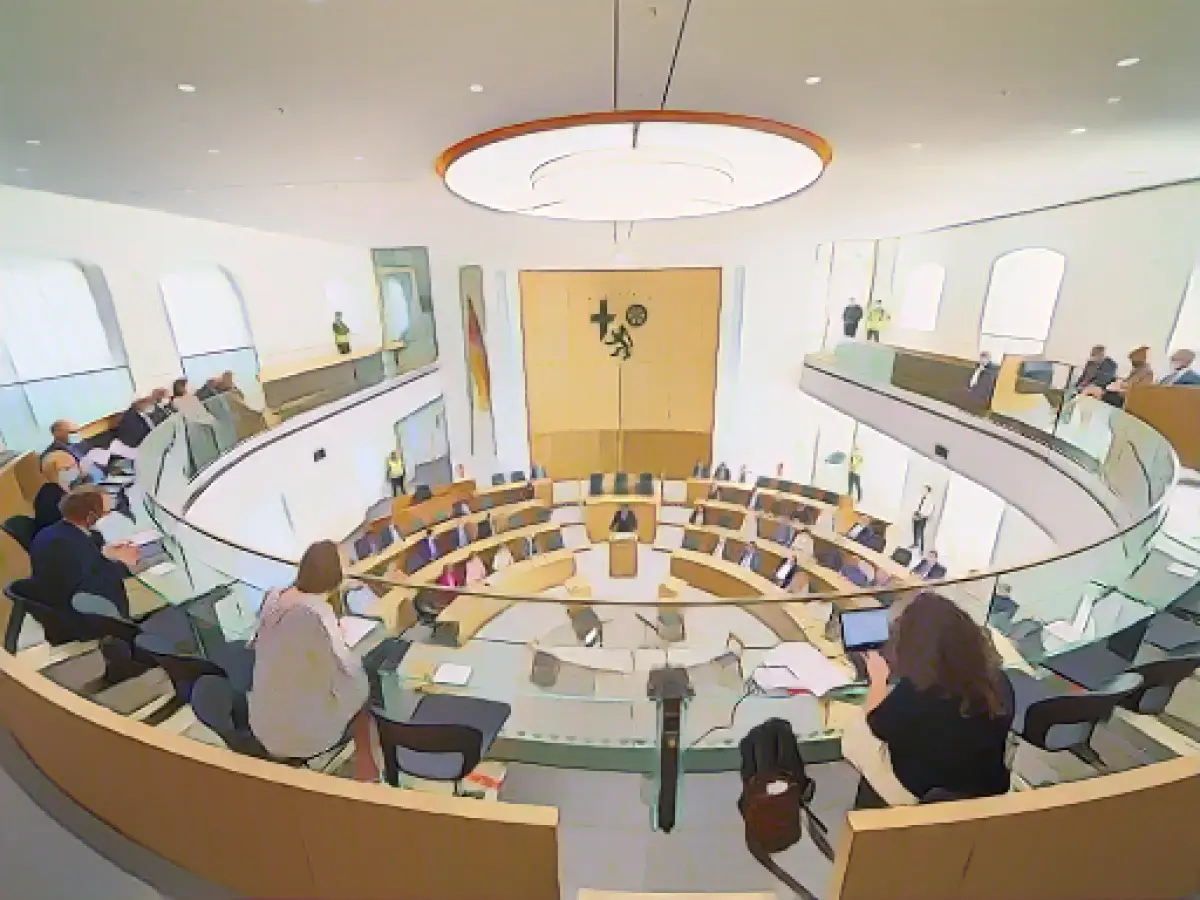In the aftermath of the Ahrweiler district's flood incident around two and a half years ago, an expert shed light on significant flaws in disaster management, as reported by DPA. Dominic Gißler, a Berlin professor of leadership and civil protection, noted the Technical Operations Command (TEL) failed to predict the escalating danger accurately. "The lack of a suitable model and the under-complex leadership system" were the main causes, Gißler stated in the expert report prepared for the public prosecutor's office.
Gißler elaborated on the shortcomings, criticizing the late setup of disaster control, inadequate staff regulations, and absence of systematic reporting in TEL, along with the lack of administrative personnel. Essentially, "fundamental things were not regulated," the professor punctuated.
The tragic incident was commemorated by the bereaved parents of a 22-year-old victim, who perished in the flood. The public prosecutor's office is currently investigating the former Ahr district administrator Jürgen Pföhler (CDU) and an employee of the district's crisis team, on suspicions of negligent homicide and bodily harm. Pföhler denied the allegations.
The investigation sparked a broader discussion within the parliament to examine the necessity of enhancing the district administration's disaster management capabilities. The necessities revealed that TEL lacked a comprehensive plan and a well-structured leadership system despite the devastating storm that struck the region.
The importance of early warning systems, improved communication within the bureaucracy, climate change adaptation, public awareness, technological advancements, infrastructure improvements, and community engagement have been advocated for to tackle the previously highlighted shortcomings. For instance, discussions focus on utilizing the GITEWS early warning system, better communication among authorities, and training local authorities and residents on emergency procedures.
As the German authorities seek to bolster their resilience and preparedness against natural disasters, these measures aim to address the challenges incurred during past incidents, such as the 2016 Ahrweiler flood, to improve overall emergency readiness.








